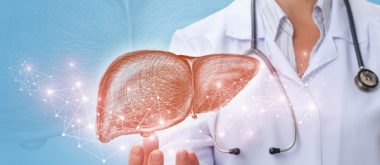As you age, it becomes more important than ever to ensure that you are getting the right nutrients. One of the most important vitamins for seniors is vitamin D. It plays a crucial role in keeping your bones healthy and strong and has other health benefits too. This article will discuss the role of vitamin D as you age and explain everything you need to know about this vital nutrient.
What Is Vitamin D?
It is a nutrient that is essential for good health. It is important for several reasons, including maintaining strong bones and teeth and keeping your immune system healthy. It is found in two main forms: D2 (ergocalciferol) and D3 (cholecalciferol). Vitamin D2 is found in food, while vitamin D3 is produced by the body when exposed to sunlight.
Roles of Vitamin D as You Age
There are many potential health benefits associated with this vitamin, including:
It is essential for average growth and development. The vitamin regulates the amount of calcium and phosphate in your body. These minerals are needed to keep your bones strong, maintain bone density and prevent bone loss. It is also essential for physical growth, development, hormone production and preventing diseases.
Several studies suggest that high vitamin levels may help protect against certain types of cancer. Higher rates of this vitamin have been linked to a decreased risk for colon cancer, breast cancer and prostate cancer.
It helps the body absorb and use calcium. Calcium is a mineral that plays an essential role in healthy bones. It may help decrease the risk of osteoporosis, a condition in which bones become weak and brittle. Osteoporosis is linked with increased risks of fractures and loss of bone density.
It has been shown to positively influence muscle tone and strength as you age. The vitamin, along with fiber, may help protect against muscle wasting and osteoporosis-related bone loss, which can help promote a healthy body weight, maintain muscle mass and ease pain associated with muscular issues.
Maintaining a healthy diet rich in foods such as fruits, vegetables and fish is essential for maintaining good brain health as you age. It is an essential nutrient for brain development and maintaining cognitive function. According to several research studies, higher vitamin D levels are linked with a lower risk of Alzheimer’s disease.
How Much Do You Need as You Age?

How Can I Get Enough of This Vitamin?
There are three main ways to get enough vitamin D:
- Diet: Vitamin D is found in a few foods, including fatty fish, egg yolks and fortified foods. However, it is difficult to get enough of this vitamin from diet alone. This is why supplements are often recommended.
- Sunlight: The best way to get this vitamin is by exposing your skin to sunlight. Just 10 to 15 minutes of sun exposure per day should be enough to produce the required amount of vitamin D. However, it is important to limit your sun exposure to reduce the risk of skin cancer.
- Supplementation: If you don’t have enough sunlight exposure or don’t eat enough vitamin D-rich foods, you may need to take a supplement. These supplements are available in two forms: D2 and D3. Both forms are equally effective at raising the vitamin levels in the body. Additionally, some people may need higher doses of vitamin D, such as 2000 IU (50 mcg) per day.
What Are the Risks of Taking Too Much of This Vitamin?
Taking too much can lead to a buildup of calcium in the blood, which can cause health problems such as kidney stones and heart disease. Additionally, it is a fat-soluble vitamin, which can build up in the body and reach toxic levels. For this reason, it is important only to take the recommended amount and not exceed the upper limit of 4000 IU (100 mcg) per day.
Bottom Line
This is an essential nutrient for good health and has many potential benefits, including reducing the risk of bone loss, fractures, Alzheimer’s disease and cancer. The best way to get enough of it is by exposing your skin to sunlight. However, it is important to limit sun exposure and to supplement with vitamin D if you don’t have enough sunlight exposure or if you don’t eat enough vitamin D-rich foods. Taking too much can be harmful, so it is important only to take the recommended amount.





